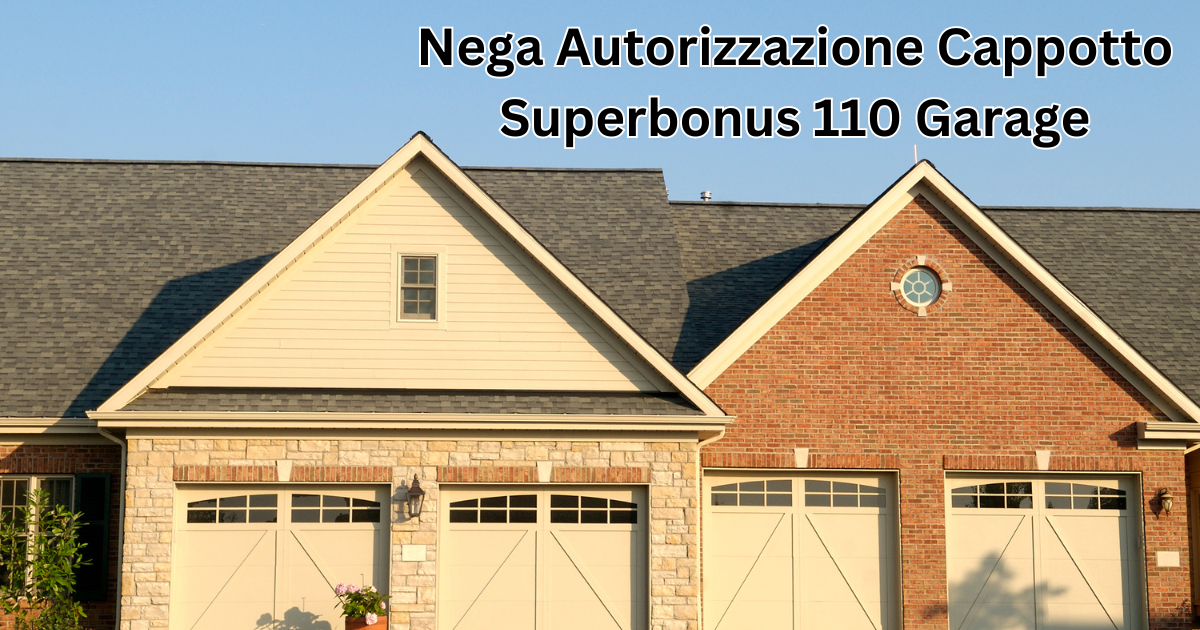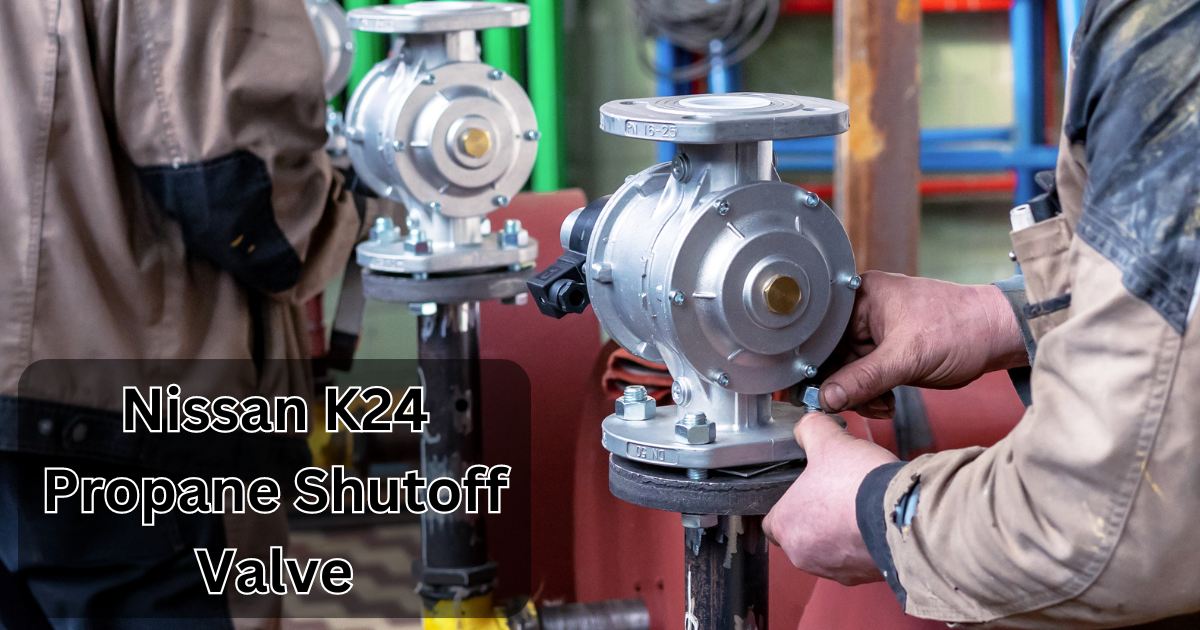The Superbonus 110% scheme represents a significant opportunity for property owners in Italy to enhance energy efficiency through substantial tax incentives. However, securing authorization for specific interventions, such as installing a thermal insulation system (cappotto), can sometimes be challenging—especially when it comes to garages and other non-residential spaces. This guide delves into the common issues and solutions related to nega autorizzazione cappotto Superbonus 110 garage, focusing on how to address and overcome authorization denials for garage insulation under the Superbonus 110% scheme.
Introduction to the Superbonus 110%
What is the Superbonus 110%?
The Superbonus 110% is an Italian government initiative that provides a tax deduction of up to 110% for qualifying energy efficiency improvements and seismic retrofits. The scheme aims to encourage property owners to undertake significant renovations, which contribute to energy savings and reduced environmental impact.
Importance of Thermal Insulation in Energy Efficiency
Thermal insulation, or cappotto termico, plays a crucial role in enhancing a building’s energy performance. By improving thermal resistance, it helps in maintaining consistent indoor temperatures, reducing heating and cooling costs, and minimizing energy consumption. This not only benefits homeowners but also contributes to broader environmental goals.
Focus on Garages and Accessory Buildings
While the focus often remains on residential buildings, garages and other accessory structures are also eligible under certain conditions. Understanding how these structures fit into the Superbonus 110% scheme is essential for maximizing the benefits of the program.
The Thermal Insulation System: What It Is and How It Works
Definition of Thermal Insulation
Thermal insulation, commonly referred to as “cappotto termico” in Italy, involves applying insulating materials to a building’s exterior. These materials reduce heat loss during the winter and keep interiors cooler in the summer. Typical materials include expanded polystyrene (EPS), mineral wool, and polyurethane.
Commonly Used Materials
Each type of insulation material offers different benefits. EPS is lightweight and has good thermal performance, while mineral wool provides excellent fire resistance. Polyurethane, though more expensive, offers high thermal efficiency. The choice of material depends on various factors including cost, thermal performance, and installation requirements.
Benefits in Terms of Energy Savings
Effective insulation reduces the need for heating and cooling, leading to lower energy bills. By minimizing heat transfer, it helps maintain a stable indoor climate, enhancing comfort and reducing the environmental impact of energy consumption.
Superbonus 110%: Requirements and Benefits
Overview of Superbonus 110% Requirements
To qualify for the Superbonus 110%, property owners must meet specific criteria, including making eligible energy efficiency improvements and complying with technical standards. This includes addressing the “nega autorizzazione cappotto Superbonus 110 garage” issue if it arises. The work must be carried out by certified professionals, and all documentation must be submitted accurately to avoid any authorization denials.
Principal and Ancillary Works
The Superbonus 110% covers both principal (e.g., thermal insulation) and ancillary works (e.g., installation of energy-efficient windows). It is crucial to understand which interventions are eligible and how they must be integrated to benefit from the full tax deduction.
How Thermal Insulation Fits into the Subsidized Interventions
Thermal insulation is considered a primary intervention under the Superbonus 110%. By installing a cappotto termico, property owners can significantly improve their building’s energy rating, thereby qualifying for the tax incentives.
Garages and Non-Residential Buildings: Are They Included?
What the Regulations Say About Non-Residential Buildings
Regulations regarding non-residential buildings, including garages, can be complex. The Superbonus 110% typically focuses on residential properties, but certain improvements to non-residential structures may still qualify if they meet the specific criteria.
Possibility of Obtaining the Superbonus for Garages
Garages can qualify for the Superbonus 110% if they are part of a residential property and meet the necessary conditions. It is essential to confirm the eligibility of each case with the relevant authorities to ensure compliance.
Authorization for Thermal Insulation: The General Procedure
How to Request Authorization for Thermal Insulation
Requesting authorization involves submitting a detailed application to local authorities. This application should include project plans, technical specifications, and evidence of compliance with regulations. It is advisable to work with a qualified professional to navigate this process.
Required Documentation
Documentation typically includes architectural plans, energy performance certificates, and proof of compliance with building codes. Ensuring all documents are complete and accurate is crucial for a successful application.
Timelines and Approval
Approval timelines can vary depending on the complexity of the project and the efficiency of the local administration. Property owners should anticipate potential delays and plan accordingly to avoid setbacks.
When and Why Authorization Might Be Denied
Common Reasons for Authorization Denial
Authorization might be denied due to incomplete or incorrect documentation, failure to meet regulatory requirements, or conflicts with existing building codes. Understanding these common issues can help in addressing them effectively.
Administrative Hurdles and Local Regulations
Local regulations and administrative procedures can also impact authorization. Variations in regulations across different regions may lead to inconsistencies in how applications are handled, affecting the likelihood of approval.
Denied Authorization for Garage Insulation: Common Cases
Why a Garage Might Not Be Included in Authorization
Garages might be excluded from authorization due to their non-residential status or because they do not meet specific eligibility criteria. It is important to review the regulations to understand these limitations.
Cases of Unapproved Garages or Non-Compliance
Some garages might not be approved due to issues such as non-compliance with zoning laws or insufficient documentation. Examining these cases can provide insights into how to address similar issues.
Local Regulations: Regional Differences
How Local Regulations Affect Authorization
Local regulations can significantly influence the authorization process. Differences in building codes, zoning laws, and administrative procedures across regions can impact the approval of thermal insulation projects.
Variations Between Municipalities and Regions
Understanding the specific regulations of your municipality or region is essential. Local authorities may have additional requirements or interpretations of national laws that can affect project approval.
Condominiums and Garages: Authorization Issues
Common Problems in Condominiums with Garages
In condominiums, authorization issues may arise due to the need for collective decision-making. Disagreements among condo owners or lack of consensus can impede the approval process for garage insulation.
The Role of the Condominium Assembly in Decisions
The condominium assembly plays a crucial role in approving modifications to common areas. Coordinating with the assembly and ensuring their approval is a key step in securing authorization.
Also Read: Why is Nickel-Phosphor-PTFE Not Used in RockShox
Case Studies: Denied Authorization for Garages
Real-Life Examples of Authorization Denials
Examining real-life cases where authorization was denied can provide valuable lessons. These examples illustrate common pitfalls and offer guidance on how to avoid similar issues.
Analysis of Case Studies and Solutions
Analyzing these case studies helps in understanding the reasons for denial and exploring potential solutions. Learning from others’ experiences can improve the chances of a successful application.
How to File an Appeal if Authorization is Denied
Steps for Administrative Appeals
If authorization is denied, filing an appeal involves submitting a formal request for reconsideration. This process includes presenting additional evidence or addressing issues highlighted in the denial.
Timelines and Costs of Appeals
Appealing a denial can be time-consuming and may involve costs. Understanding the appeal process and associated expenses helps in preparing for potential challenges.
Alternative Solutions: Substitute Interventions
Possible Alternative Interventions to Thermal Insulation
If thermal insulation is not approved, alternative interventions may be considered. These might include other energy-saving measures that still contribute to improving overall energy efficiency.
Improving Energy Efficiency Without Thermal Insulation
There are various ways to enhance energy efficiency without relying solely on thermal insulation. Exploring these alternatives can help achieve similar benefits and ensure compliance with the Superbonus 110% scheme.
The Role of the Technical Assessor in Authorizations
How a Technical Assessor Can Assist
A technical assessor plays a critical role in facilitating the authorization process. Their expertise helps in preparing accurate documentation and ensuring compliance with technical standards.
Documents and Certifications that Can Facilitate Approval
Technical assessors can provide necessary certifications and verify that all requirements are met. Their involvement can streamline the approval process and increase the likelihood of success.
Non-Condoned Garages: What to Do?
Legal and Bureaucratic Implications of Non-Condoned Garages
Non-condoned garages may face legal and bureaucratic challenges. Addressing these issues involves understanding the implications and taking steps to regularize the property’s status.
How to Regularize the Garage’s Position
Regularizing a non-condoned garage typically involves legal procedures and compliance with local regulations. Seeking professional advice can assist in navigating this process effectively.
Importance of Preliminary Design
How Accurate Design Can Prevent Authorization Issues
A well-prepared design is crucial for avoiding authorization problems. Accurate planning and thorough documentation ensure that the project meets all requirements and reduces the risk of denial.
Role of the Technician in Verifying Project Feasibility
Technicians play a vital role in assessing the feasibility of a project. Their expertise helps in identifying potential issues early and ensuring that the project aligns with regulatory standards.
Superbonus 110% and Garages in Restricted Areas
Challenges in Obtaining Authorization in Restricted Areas
Authorization for garages in restricted or protected areas can be particularly challenging. Special regulations and restrictions may apply, affecting the approval process.
Compatible Interventions in Protected Areas
Even in restricted areas, it is possible to undertake certain interventions that comply with local regulations. Identifying compatible measures ensures that the project adheres to all necessary requirements.
Alternative Bonuses and Incentives
Other Available Tax Incentives for Energy Improvements
Apart from the Superbonus 110%, there are other tax incentives available for energy-efficient upgrades. Exploring these alternatives can provide additional opportunities for financial benefits.
Which Incentives Apply to Garages
Understanding which incentives are applicable to garages helps in maximizing the financial support available. Each incentive has specific criteria and benefits, so it is important to choose the most suitable option.
Tax Implications of the Superbonus 110% for Garages
Managing Tax Deductions for the Garage
Effectively managing tax deductions involves understanding how the Superbonus 110% affects tax liabilities. Proper documentation and adherence to guidelines are essential for claiming the full benefit.
Required Tax Documentation
Maintaining accurate tax documentation is crucial for ensuring compliance and maximizing deductions. This includes invoices, receipts, and certification of completed work.
Conclusion
To avoid issues related to nega autorizzazione cappotto superbonus 110 garage, ensure that all documentation is complete and accurate. Collaborating with experienced professionals and understanding local regulations can significantly improve your chances of success.
Navigating bureaucratic challenges related to nega autorizzazione cappotto superbonus 110 garage requires careful planning and patience. Staying informed about regulatory changes and seeking professional assistance can help in overcoming obstacles and achieving project goals.
Frequently Asked Questions (FAQ)
Is thermal insulation for garages always included in the Superbonus 110%?
Thermal insulation for garages can be included in the Superbonus 110% if the garage is part of a residential property and meets specific criteria. It is essential to check eligibility with local authorities.
What can I do if my authorization is denied?
If your authorization is denied, you can file an appeal or seek alternative interventions. Reviewing the reasons for denial and addressing them can improve the chances of a successful appeal.
Can I appeal a denial of authorization?
Yes, you can appeal a denial of authorization. The appeal process involves submitting a formal request for reconsideration and providing additional evidence or addressing the issues raised in the denial.
Are there alternatives to thermal insulation for the Superbonus?
Yes, there are alternative interventions available if thermal insulation is not approved. These may include other energy-saving measures that still qualify for the Superbonus 110%.
What documents are required for authorization of thermal insulation in a garage?
Required documents typically include architectural plans, energy performance certificates, and proof of compliance with building codes. Ensuring that all documentation is complete and accurate is crucial for approval.











